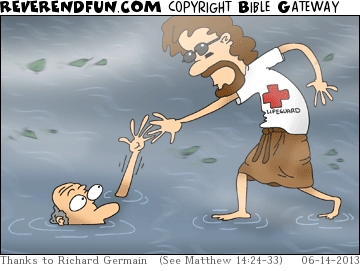
Hello everyone,
Welcome to the latest issue of our church newsletter. I hope you are all keeping well. Our church is now open for Sunday services but we will continue to send out our newsletter regularly for the foreseeable future. You can find previous issues of the newsletter here. We would love to hear from you and are looking for uplifting and encouraging content to share in future issues of this newsletter. If you have any ideas or content that we can share, please do email them to Louise (publicity@christchurchuxbridge.org.uk)
We start with our opening prayer:
Here we are, Creator God, Lord and Spirit,
standing before you, grounded on the earth,
our hands stretched high like a tree.
You fill us with amazement, wonderful God. Amen.
(Taken from Roots)
Reflection from 6 June: A different direction
Readings: Mark 3: 20-35 and 2 Corinthians 4.13 – 15.1
In these early chapters of Mark’s gospel, things are moving at a relentless pace for Jesus – vast crowds have followed him around Galilee, watching closely as he heals the sick and casts out unclean spirits.
Some of the people who follow him are just hoping to be in on the action, and they don’t much care if it is a healing or a pitched battle that they witness. But some of the crowd can already be called disciples. In Mark 3 verse 8 we are told that ‘When they heard all that he was doing, many people came to him from Judea, Jerusalem, Idumea and the regions across the Jordan and around Tyre and Sidon’. They would no doubt believe that they are following Jesus out of conviction.
From their number, Jesus has just chosen the twelve, who are to be particularly closely identified with his mission throughout their lives. Up to this point Jesus’ actions have been greeted with adulation, but now the backlash of rumour and innuendo begins. Is he out of his mind? Already he has made bitter enemies out of the local clergy.
And now he goes home, Mark tells us – and even here the crowd presses around him – so thickly that his family began to get rather cross. His antics are annoying the neighbours and getting the family a bad reputation – and so, even they, are beginning to have their doubts – and they try to restrain him.
Perhaps they had thought that Jesus’s healing and teaching was like a job – he could go out to do it by day and, in the evening, come back to a normal family. This great heaving, struggling mass of people – with their noise and their litter and their complete lack of concern for any other part of Jesus’ life – is certainly not what they had expected.
They began to be rather afraid that the experts from Jerusalem are right and that Jesus had gone mad. After all, no one in their right mind would want to be the centre of such scenes, would they!
Jesus’ family are reacting very much as any other family might do whose brother or son has catapulted to superstardom overnight. They knew that he was something special, but they hadn’t anticipated if having this kind of effect on all their lives.
This story that Mark tells about Jesus’ family is not a happy one. Tragically, by seeking to restrain Jesus, they have become a house divided against itself, which cannot stand. They are now left outside as Jesus defines his new family as whoever does the will of God’ and Jesus’ followers are invited to be a new community who (unlike Jesus’ own family and the scribes) will recognise what God is doing in him, and who will join him in his crucial work of confronting evil in the world.
It seems to me that if Jesus chooses not to go out to his mother and brothers – who, understandably come looking for him – it is not because he has stopped loving them or caring about them, but because to return home with them would be to take a backward step – it would mean returning to the old value system and the divisive and unjust rigidity of its traditions and boundaries.
In the ancient world, a son was expected to live in obedience to his father and follow his father’s trade. This signified his acceptance of religious, social and cultural norms, and his willingness to conform to the status quo.
But the purpose of Jesus’ ministry was not to support the status quo but to proclaim the Kingdom of God. In using the image of ‘binding the strong man’, Jesus asserts that he is called to confront and overcome the power of evil in all its guises. Therefore, a return to the old life is impossible.
As children, we often absorb our parents’ values in a sponge-like way and – just as Jesus must have learnt strong and righteous values in the home and from Joseph and Mary – the values we learnt from our parents may well have be good and true and set us off on the right track. Yet, as we grow up, we naturally begin to re-assess and test out attitudes which earlier we had accepted without question. We may move away from certain values or take a stand against particular points of view which our parents had never thought to doubt. This is an entirely natural and important process of our development and growth – which needs to continue throughout our life.
But when we journey away from the ways and wisdom, which ways and wisdom do we journey towards? When we become more independent in our teens and twenties and beyond it is all too easy to simply to absorb the current attitudes of the society which now surround us, and to exchange unquestioning acceptance of the values of the people who brought us up for those of contemporary culture – perhaps just replacing the flawed old status quo for a flawed new one.
However, if the anger and bewilderment of Jesus’ family is comprehensible, the scribes are appalled. Fearing that the Romans will sense revolution in the air and ban all Jewish religious practices, they try to discredit him. They cannot possibly allow this huge crowd of people to believe in Jesus, and perhaps even pass on their belief to yet more people – because Jesus is not singing from their particular hymn sheet.
Jesus has already made it perfectly clear that he will not dutifully follow the rules – and the scribes are afraid of losing control of a large proportion of the population. Perhaps they are not just cynically thinking of their own prestige and pockets. Perhaps they are genuinely devout students of scripture and are shocked at what they have heard about Jesus forgiving sins and healing on the Sabbath. In their eyes Jesus is not obeying the clear word of scripture, so he must be wrong – whatever the crowds think, and no matter how commendable his healings appear to be. They see his power and they know only two sources of such power – God or the devil. It can’t come from God – because God can only work according to the scripture – so it must come from the devil.
Jesus responds in two ways. First, he highlights their lack of logic. Why would Satan turn on himself? A kingdom or a house divided against itself cannot stand – so Satan would be doomed. In fact, Satan’s end has come – but this is the work of God, not of Satan. This is about the religious leaders failing to recognise the power of God that is revealed in Christ. Logically, the point is not that God will not forgive them, it is that they are unable to receive God’s forgiveness because they cannot recognise God at work. More important is Jesus’ second response – and that is to tell the parable of the strong man, bound by the one who is stronger. The battle between good and evil, between Jesus and Satan is laid bare – Jesus is revealed as the strong man who is ‘binding back Satan and ‘plundering his goods’, i.e. setting people free from the evil forces that dominate their lives. This dramatic image is hugely liberating for anyone who is feeling trapped in situations that are beyond their control. Modern examples of which may include addiction, debt, exploitative labour practices or human trafficking, mental or physical illness, social exclusion and even, as in the gospel reading we heard – misplaced familial or religious loyalties. The simple fact of the matter is that everything Jesus has done is good. Everywhere he goes, madness, evil and sickness are banished.
The voices of the demon-possessed call out to Jesus throughout these first chapters of Mark, and they call out in fear, in longing, and in recognition of the power of God, so alien to the small, mad, dark power that tries to control them but is nowhere near strong enough to blind them to the reality of God.
In Luke’s gospel, Jesus begins his public ministry by saying in scriptural words what we are about to see – good news is brought to the poor, the captives are released, the blind see and the oppressed go free. But here, in Mark’s gospel, Jesus simply does God’s word – he performs it in action, rather than proclaiming it in words.
Evil does not work against itself, Jesus says. Recognise the strong liberating might of God – come to put an end to all captivity. Do not dare to confuse the action of God to free his people with the action of the enslaving enemy. This, Jesus says, is the ‘blasphemy against the Holy Spirit’. It is the willingness to confuse God’s living, liberating Spirit with the death dealing, imprisoning, spirit of evil. You cannot confuse them by accident. You can only do it if you wilfully reject God and prefer to be bound yourself and see others in chains – than accept God’s redemption in Christ.
And so, today’s Gospel reading invites us to take a different direction. When God calls us from the old ways, it is to free us to turn towards the values of his Kingdom – standing against the powers of evil and seeking to ‘bind the strong man’ – in whatever shape or form he manifests himself. Just as Jesus refused to be turned from his course by those who thought he was off his head or in cahoots with the devil himself, we too are challenged to stay true to Kingdom values. Many fears, hatred and divides tear our world apart, while new forms of modern-day slavery never cease to rear their very ugly heads.
As followers of Christ today, and as members of God’s family charged with doing his will, we are called in our turn to recognise where evil is at work and to commit ourselves to ‘binding the strong man’.
How and where shall we speak? What action are we called to take? Will we have the strength and courage to speak up and act as we are called to do?
Marion McNeill
Our readings for this week
Mark 4:26-34 (NIV)
The parable of the growing seed
26 He also said, ‘This is what the kingdom of God is like. A man scatters seed on the ground. 27 Night and day, whether he sleeps or gets up, the seed sprouts and grows, though he does not know how. 28 All by itself the soil produces corn – first the stalk, then the ear, then the full grain in the ear. 29 As soon as the corn is ripe, he puts the sickle to it, because the harvest has come.’
The parable of the mustard seed
30 Again he said, ‘What shall we say the kingdom of God is like, or what parable shall we use to describe it? 31 It is like a mustard seed, which is the smallest of all seeds on earth. 32 Yet when planted, it grows and becomes the largest of all garden plants, with such big branches that the birds can perch in its shade.’
33 With many similar parables Jesus spoke the word to them, as much as they could understand. 34 He did not say anything to them without using a parable. But when he was alone with his own disciples, he explained everything.
Further readings from the lectionary this week are as follows:
- 2 Corinthians 5:6-10 (11-13), 14-17
- Ezekiel 17:22-24
- Psalm 92:1-4, 12-15
Our worship
We meet at 11am for our Sunday services, which are also live-streamed on our Facebook page. If you wish to view our services online, you can find them at www.facebook.com/christchurchuxbridge. You do not have to be a Facebook user to watch them – our services are publicly viewable. You can also view a recent service on our church website. Our service this week will be led by members of Christ Church and you can find the order of service here.
We meet via Zoom immediately after the service for a virtual ‘coffee and chat’. The link for this will be shared in the comments on Facebook during the service.
If you are unable to join us in person or online for our Sunday services, but would like to receive a recording of them on a memory stick to watch at home, please let us know.
Bible exploration
Our most recent Bible exploration session was ‘Decelerate’ – focusing on how hurry can keep us from enjoying life with God and with others, and the importance of learning to slow down and to be present to God. As always the session finished with some challenge ideas for the week ahead. This week’s challenges encouraged us to find ways to slow down and be present to God and others. Perhaps we could take a moment to be still and remember God as we wait to boil the kettle to make a cuppa, or take a moment to give thanks before a meal and then eat slowly and take the time to really enjoy it. My challenge will be to slow down at bedtime and take the time to focus on that time with my children. With Jessica, we used to read a Bible story regularly at bedtime, but it’s been a while since I’ve done it with Sophie and Thomas. How might you be able to slow down this week and be present in the moment with God?
Louise George

Memories of Uxbridge
In 1938/9 Sir Oswald Moseley, the head of a sect going under the name of ‘The Blackshirts’ held a meeting every Saturday evening by the pump behind St Margaret’s Church.
This sect was very pro-Hitler. Moseley had met him several times. Needless to say they had a very large audience of very pro-British toughies. It was great fun to see them after a few minutes and the police had arrived.
This site was frequently used for talks by various people to talk about many different subjects.
Syd Wilson
Children’s Corner
Down
- The ___________ of God is Jesus’ theme.
- A parable is another word for a ___________.
- What kind of seed does Jesus use as an example?
Across
- Who will build their nests in trees?
- What will the branches create to keep nests cool?
- Who creates birds and seeds and trees?

Praying for other churches
This week we hold the following churches in our prayers:
- Eastcote Methodist
- URC at Eastcote and Northwood Hills
Closing prayer
Lord, you have called us to follow you,
And we seek to do that in any way we can.
Use us today that we may be a blessing to others,
and to the whole of creation. Amen.
(Adapted from The Vine)



